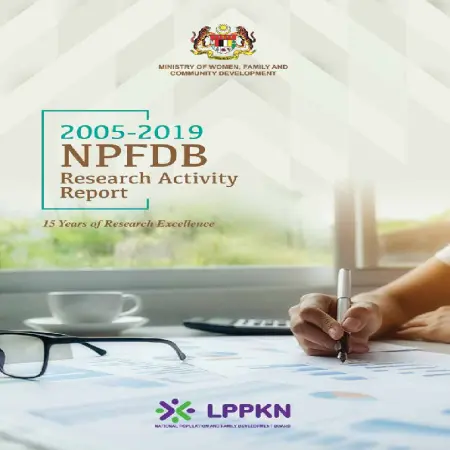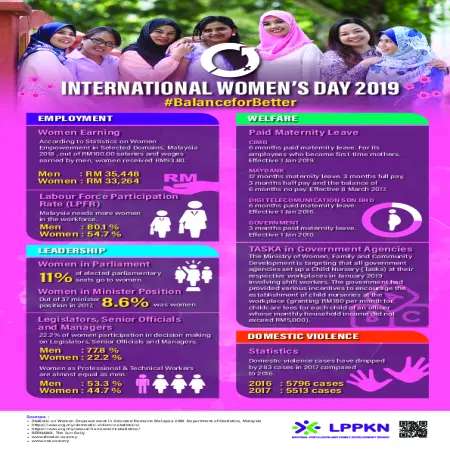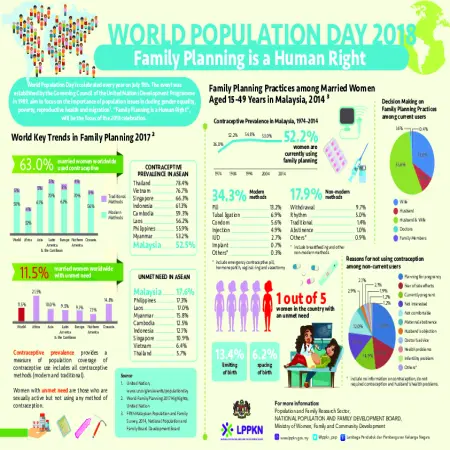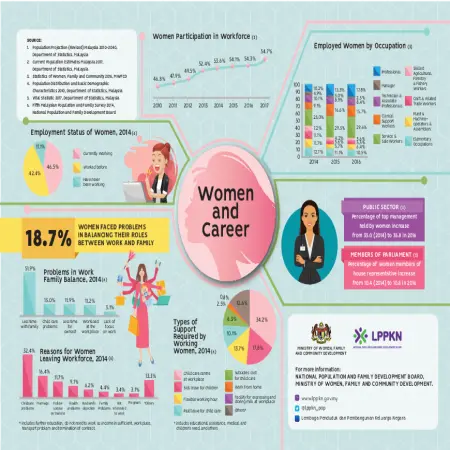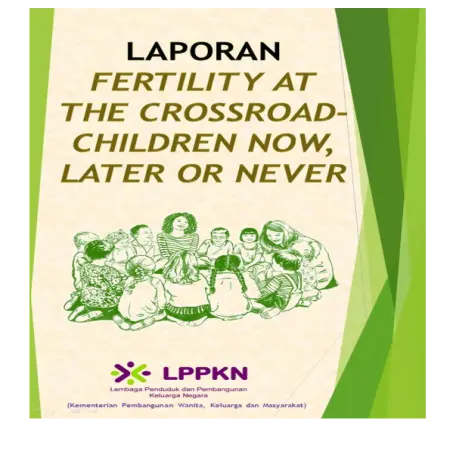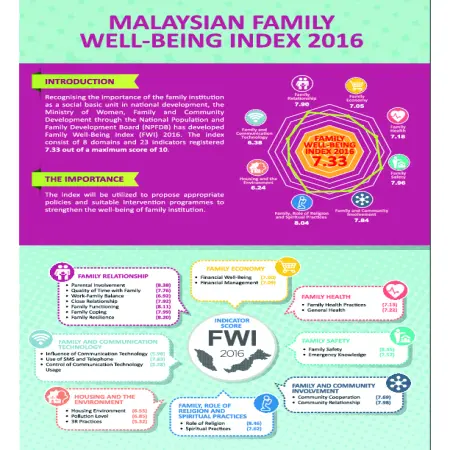Browse by Author
Results for Family Name : "National Population and Family Development Board, Malaysia"
|
|
2005-2019 NPFDB research activity report
Item Type: Book
Editor:
Year: 00/00/2019
Abstract: This report highlights the research programmes and activities conducted by NPFDB over the past 15 years. One of the primary functions of NPFDB is to identify, promote and conduct research and studies on population, family development and reproductive health. NPFDB is responsible to advise the government on matters relating to policies and programmes through the findings of research in these three thematic areas. The Board established the Research Committee in 2009 to identify priority research, provide guidance and monitor the research activities in NPFDB. The first Research Committee meeting was held on 13th January 2010 comprising of selected NPFDB Board Members including Associate Professor Tey Nai Peng as Chairman (University of Malaya), Associate Professor Normah Mohd Dali (MARA University of Technology), Datuk Dr. Zulkifli Haji Ismail (Selangor Medical Center), Associate Professor Siti Hawa Ali (University Science Malaysia), Dato’ Dr. Kamaruzaman Ali (FRHAM) and Mr. Lee Wee Min (Focus on the Family) and several division directors of NPFDB.
|
|
|
|
|
|
International Women's Day 2019 # BalanceforBetter
Item Type: Infographic
Editor:
Year: 00/00/2019
Abstract: This infographic shows statistics on women's involvement in Malaysia in areas such as employment, leadership, welfare as well as incentives provided by the government and the private sector in supporting women's involvement in the labor force.
|
|
|
|
|
|
International Day of Families 2019: families and climate action: focus on SDG13
Item Type: Infographic
Editor:
Year: 00/00/2019
Abstract: Climate change and global warming are caused by human activities such as discruption to ecosystem balances and carbon dioxide emissions (CO2) resulting from activities such as transport, household activity and industrialization. If this activity is not contained, it can threaten our way of life and the future of our planet.
|
|
|
|
|
|
Family planning is a human right
Item Type: Infographic
Editor:
Year: 00/07/2018
Abstract: World Population Day is celebrated every year on July 11th. The event was established by the Governing Council of the United Nations Development Programme in 1989, aim to focus on the importance of population issues including gender equality, poverty, reproductive health and migration. Family Planning is a Human Right, will be the focus of the 2018 celebration.
|
|
|
|
|
|
Cervical cancer
Item Type: Infographic
Editor:
Year: 00/05/2018
Abstract: This infographic describes information about cervical cancer. Cervical cancer is the no.3 most common cancer among Malaysian women. Almost all cervical cancers are caused by Human Papilloma Virus (HPV). The symptoms such as unusual bleeding, heavier periods and bleeding after menopause.
|
|
|
|
|
|
The 51st session of the commission on population and development :general debate on sustainable cities, human mobility and international migration, New York
Item Type: Country Statement
Editor:
Year: 09/04/2018
Abstract: Malaysia has taken the initiatives to systematically coordinate sustainable urban planning and development, with emphasis on a balanced development; physically, environmentally, socially and economically, such as through the introduction of the Safe City Concept, and Go Green Kuala Lumpur Car-Free Morning.
|
|
|
|
|
|
Laporan fertility at the crossroad-children now, later or never
Item Type: Research Report
Editor:
Year: 00/00/2018
Abstract: This study was to identify the socio-economic and psychological factors that influence the decision of women working in the public and private sectors to want to have children now, postpone pregnancy or do not want to have another child/children. It also to identify forms of support that can be provided by employers in an effort to create a family -friendly work environment. Nowadays, the issue of declining fertility rates is becoming a global issue, not just in among developed countries even in developing countries. Most countries have experienced fertility decline since the 1970s. United Nations Projections (UN) indicates most countries in the Asia Pacific region will experience a decline total fertility rate (TFR) until 2015-2030. Countries like China, Japan and Singapore have achieved TFR below the substitution level for decades ago. Rapid socio -economic development in Malaysia over the past five decades
has resulted in a decrease in births and deaths as well as an increase in migration. Malaysia is currently in the second phase of a demographic transition where fertility rates are increasing decreased while the percentage of the elderly population increased. Decrease in rate
mortality and fertility are closely linked to improved quality of life giving
significant impact on the growth and size of the Malaysian population.
|
|
|
|
|
|
Breast cancer in Malaysia
Item Type: Infographic
Editor:
Year: 00/10/2017
Abstract: The infographic shows the statistic of breast cancer in Malaysia. Breast cancer is caused by an uncontrolled growth of abnormal (cancer) cells within the tissues. If not detected and treated promptly, the cancer cells can spread to the lymph-glands and other parts of the body, including the lungs, bones and liver.
|
|
|
|
|
|
Malaysian Family Well-Being Index 2016
Item Type: Infographic
Editor:
Year: 00/02/2017
Abstract: Recognising the importance of the family institution as a social basic unit in national development, the Ministry of Women, Family and Community Development Board (NPFDB) has developed Family Well-Being Index (FWI) 2016. The consist of 8 domains and 23 indicators registered 7.33 out of a maximum score of 10.
|
|
|
|





